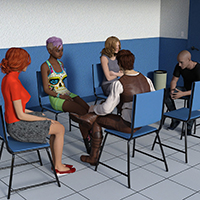Special Section: The role of psychotherapy research in psychotherapy training: mutual influences and relations
19 December 2019
Vol. 22 No. 3 (2019)
Advances in research on attachment-related psychotherapy processes: seven teaching points for trainees and supervisors

Publisher's note
All claims expressed in this article are solely those of the authors and do not necessarily represent those of their affiliated organizations, or those of the publisher, the editors and the reviewers. Any product that may be evaluated in this article or claim that may be made by its manufacturer is not guaranteed or endorsed by the publisher.
All claims expressed in this article are solely those of the authors and do not necessarily represent those of their affiliated organizations, or those of the publisher, the editors and the reviewers. Any product that may be evaluated in this article or claim that may be made by its manufacturer is not guaranteed or endorsed by the publisher.
2454
Views
1542
Downloads
66
HTML






